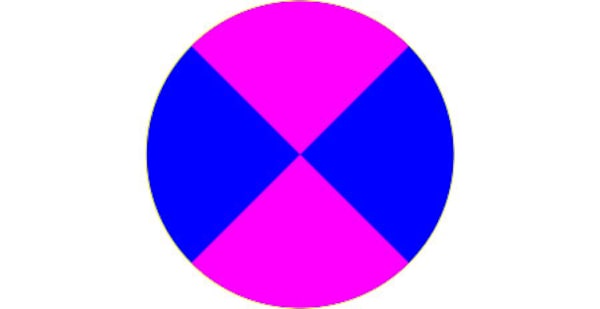
Table of contents • John Ralston Saul: What a dictionary can do • Adrienne Clarkson: Why language matters more than ever • Charles Foran and Scott Young: Language should communicate, not manipulate • Dictionary: A civic conversation redefined
Where does fresh thinking come from? Often enough, from familiar words and the ideas behind them made new. Why does poor thinking persist? Because those words and ideas remain unchallenged. It is a proxy battlefield.
The 6 Degrees Dictionary, a new project of the Institute for Canadian Citizenship, offers a user’s guide to inclusion. We start with 12 words, the currency of so much disagreement and misunderstanding, and recast them to provoke and inspire.
This first iteration of the 6 Degrees Dictionary will be presented for consideration and conversation at 6 Degrees Toronto, a global forum on how to build inclusive societies. Thousands of people from around the world attend our annual gathering in order to work their way to a new discourse, and to develop a language we can all share. Join nearly 50 speakers from 15 countries in Toronto from Sept. 24 to 26. For more information, go to www.6degreesto.com.
JOHN RALSTON SAUL
What a dictionary can do

Getty Images/iStockphoto
John Ralston Saul is the author of The Doubter’s Companion: A Dictionary of Aggressive Common Sense, is president emeritus of PEN International and is the co-chair of the ICC.
A dictionary is a political statement. That has always been so. They all are. Is that bad? Not necessarily. It all depends on the purpose of the dictionary. The intent. You need to know what the intent is.
Why today do we need a dictionary focused on how people live together? Try to live together? Fail to live together? Discover they can live together.
Well, this is the most grandiose yet confused subject floating about out there.
What can a dictionary do? Think of what they have done in their modern form. The great French Dictionnaire of the 17th century was written to create an elite language of power centred in Paris. For years, it was central to the international role of French as the diplomatic language. Or the Webster’s of 1828, designed as a brilliant enlightenment tool. Webster’s was the intellectual backup to the Americans’ Enlightenment-style founding documents – the Declaration of Independence, the Constitution and the Bill of Rights. Very different from the banal bit of Americana which today’s Webster’s represents. Or the Grimm brothers’ Deutsches Wörterbuch – not their fairy tales – which began appearing in 1858 and was central to the idea of a unified Germany. There is a single theme running through all three. They were written to demonstrate some sort of French, American, German exceptionalism.
What of the Oxford? It began appearing only in 1884. Here is the dictionary with the most universal ambition. It was and remains the ultimate demonstration of exceptionalism: the British Imperial argument, that English as the international language nevertheless has a centre.
Our dictionary is a very different sort of project. A much more modest ambition, to put it mildly! Its aim is the exact opposite of exceptionalism. It is about strategy and the development of a new international discourse. A discourse we desperately need.
Why? Well, the thing about immigrants, refugees and stateless people today is that we haven’t seen so many in living memory. This tells us something about the failure of established global policies. Yet when anyone suggests humanist solutions to these situations – citizenship, for example, or comfort with diversity or the encouragement of belonging – it seems to provoke ugly confusion and anger. And this in most places around the world.
Of course there are explanations and justifications. And yes, much of this crisis does have to do with the failure of today’s global policies to deal with human needs, whether financial or societal. Even more serious, these policies require the denial of human imagination and emotions.
The clear result has been a growing confusion over what we mean when we talk about human relationships. Even in Canada, perhaps the only country with a consensus in favour of diversity. Yet there is little clarity here over how to describe what works or what we are trying to do. Which words should we use, which sentences, concepts, arguments. Yes, diversity is seen as a positive phenomenon, but the consensus is also fragile. The vocabulary is limited. Terribly limited. There is a great deal of emotional insistence on people getting along with each other, which is good. Except emotions without the anchor of ideas and concepts can easily flip.
The most positive thing we can say is that the situation is probably worse elsewhere.
For example, how did “migrant” become the official word used everywhere to describe anyone who changes countries, including refugees and immigrants? After all, the meaning of the word is clear. A migrant is someone who comes, then leaves. But immigrants don’t leave, nor do most refugees. So the misuse of this word is somehow intentional, designed to project a lie – those who come will leave. Or they should.
Or, how in French did voile (veil) become the word to describe any form of covering? This is straight politics. After all, we know the real meaning of the word. A veil covers the face. A scarf covers the hair. Not the same thing. The current definition is designed to suggest millions of immigrants are wearing veils, when they aren’t.
There are many ways out of this swelling atmosphere of confusion and fear. For a start, we need less intentional prejudice in our language. Less clever misrepresentation. A balanced vocabulary. A language not designed to confuse people and to make them afraid of each other.
ADRIENNE CLARKSON
Why language matters more than ever

Getty Images
Adrienne Clarkson was the 26th governor-general of Canada (1999-2005) and is the co-chair of the ICC. She delivered the 2014 Massey Lectures, Belonging: The Paradox of Citizenship.
Alice, having passed through the looking glass, meets Humpty Dumpty on his wall. He explains his use of language to the interloper.
“When I use a word,” Humpty Dumpty said in rather a scornful tone, “it means just what I choose it to mean – neither more nor less.”
“The question is,” said Alice, “whether you can make words mean so many different things – that’s all.”
“The question is,” said Humpty Dumpty, “which is to be master – that’s all.”
Like Alice, we have all passed through the wonder of the initial engagement with language. In Canada, we pride ourselves on literacy as a mark of our civilization. But literacy does not mean that we use our ownership of language in order to make words mean what we want them to mean. Why can’t we?
Well, for one thing, we then take away the universality of language and the basis upon which we understand each other. We start out from the cradle, as Noam Chomsky indicated half a century ago, with an innate ability to acquire language. We don’t have to be taught the grammar of our first language. As part of our humanness, we are able to process meaning. We develop vocabulary and are able to communicate in varying degrees of adequacy, intelligence and even brilliance with each other.
When we deform language, when we choose words and make them mean what we want them to mean, then language becomes loaded. The whole human purpose of language is lost. Referring to doctors’ patients as “clients” puts a whole new meaning on the relationship between the healer and the to-be-healed. At the very least, it subverts the Hippocratic oath.
If we become lazy, obfuscating and malicious, we subvert the very means by which we communicate with each other. When we kidnap language and Humpty Dumpty-ize it, we are saying that we no longer want to really communicate, but that we simply want to state our point of view, or put forward propaganda.
In a country like Canada, it is particularly important that we understand the meanings of words. Diversity is our strength. Diversity can also cause division.
In Canada, we do not use citizen in the same way as it was used when it came into its modern context, as a result of the French Revolution – when the people became a power in and of themselves, without reference to any hierarchical structure. From the 18th century on, we were not prepared for the consequences of overthrowing an order that had been in place for centuries, however shakily and however flawed. And now, more than anything, the idea of personal responsibility entered into the consciousness of the people post-Revolution, and it is today still part of the consciousness of Western societies.
In the Canadian context, a citizen means being part of a collection of people who are not related to each other by blood, religion or even shared history. We understand what it is to have at the heart of our citizenship an act of imagination. We believe that by acting together, we start in this country not with a political status quo from which the idea of citizen devolves, but with an idea of citizen from which a nation evolves.
We cannot have a country in which we do not have a common vocabulary and an agreement on what the words mean. A country of Humpty Dumpties cannot be put together again once it has fallen off the wall.
In Logico-Philosophical Treatise, philosopher Ludwig Wittgenstein argues against “private language.” He points out that language is primarily social and words get their meanings by the way they are used by communities of users. Humpty Dumpty – who is actually a fragile egg – sits all alone and means what he says and says what he thinks things mean. It is the very opposite of what we must have for a society in which citizens understand each other. Language must not be privatized; words should not be kidnapped.
In the Bible, we are told that Adam named everything appropriately. Humpty Dumpty-ization of language means that there is only subjectivity to legitimize language. We must all try to use words correctly, and protect them from the shiny patina of misuse.
CHARLES FORAN AND SCOTT YOUNG
Language should communicate, not manipulate

Getty Images/iStockphoto
Charlie Foran is the CEO of the Institute for Canadian Citizenship, and the author of 11 books. Scott Young is director of ideas and insights at the Institute for Canadian Citizenship.
Here are two sentences that contain bad language: After consultation, our stakeholders are demanding that we weaponize our innovations to ensure real outcomes. It’s how we disrupt the status quo, enabling us to better serve our clients.
In all likelihood, the offending terms are easy to spot. Consultation, stakeholders, weaponize, innovation, outcomes, disruption, status quo, clients: These words are ubiquitous and, seemingly, conveyors of meaning. They are state-of-the-art, but only if the art is not communicating.
Wars over language, and through language, have come to shape our age. Every day offers fresh battles, fought on various platforms by various factions and individuals. Nearly everyone appears to be involved in these skirmishes, starting with the President of the United States on Twitter. No one is following any rules, never mind consulting any dictionaries.
Not long ago, most bad language came courtesy of government propaganda or advertising-agency blandishments. Now the vocabularies of the consulting world and academia, in particular, are erecting their own screens and barriers.
For brevity, let’s outline three broad categories of screens – call them “lazy words,” “obfuscating words” or “malicious words” – and provide examples of each. A couple of disclaimers. First, given the overall noise levels most of us live with – much of the volume beyond our control – language oversaturation is a huge problem. A term like disruption went from sharp and interesting to flabby and cynical in the space of a decade, maybe less. It once connoted something dynamic and optimistic, serving as challenge to long-standing conventions. Now it primarily signals someone’s wish to signal something about themselves.
Second, terms can migrate between categories depending on who uses them, and why, and how. Our lazy word may be closer to obfuscating to someone else. Words we consider malicious could be ascribed as merely lazy. For example, assigning dark intent to the term consultation might come as a surprise, although we think we are justified. You might even disregard this exercise altogether, dismissing such language as simply the business of doing business today.
But you should probably be a little skeptical. A stakeholder now means everyone who might be implicated or interested or have a mere tangential stake in a project. When defined that lazily, it absolves all parties of any direct responsibility. Innovation used to refer to new, more effective methods for solving old problems. It has been drained of meaning, and is no more than a perfunctory label aimed at grabbing attention.
As a term of malicious intent, to weaponize likely requires no defence. It is an obscene term for any use other than a description of something created to kill. Consultation is more open to dispute. Most, we suspect, would assign the term no deeper a hole than lazy, for its overuse, or perhaps obfuscating, for how it can substitute for a plan.
But for many Canadians, most notably Indigenous peoples, a consultation may now have lost so much credibility or meaning that it rings of something like its opposite: a process embarked upon to ensure nothing happens, over and over, and even to dishonour and disempower the group being consulted, also over and over. The term should be approached with caution in 2018.
Calling out such lazy, obfuscating and malicious words is more than an exercise. It is a good mental exertion: good for your mind, and for the English language. It is also to push back against manipulation and distortion, and indirectly reassert first principles – that language is meant to communicate, and to connect.
THE 6 DEGREES DICTIONARY
A civic conversation redefined
IMMIGRANT / noun. [From Latin immigrantem, “to go into, to move in,” origins in Latin emigrantem “to move away,” first used in English in 1794.]

Darryl Dyck/The Canadian Press
1. An individual who leaves one country to become the citizen of another.
2. A noble term describing someone with the courage, decisiveness and consciousness to wish to change their lives by changing their country.
3. An individual whose qualities enrich their new society through public structures, culture, politics and economics.
4. On average, more comfortable with risk than those born in the country.
5. Tends to be more ferociously loyal to their new country and its ideas of justice than those born there.
6. An immigrant is to engagement what a citizen is to marriage.
[See: belonging, citizen, migrant, multiculturalism]
-John Ralston Saul
MIGRANT / noun. [From Latin migrat- “to move, to shift.”]
1. A bird, animal or butterfly with a regular and circular pattern of movement.
2. In practice, an underpaid industrial or agricultural worker who is expected to return to their home in the off-season.
3. In common usage, a label intended to exclude, marginalize, patronize and dehumanize.
4. As in, “When you’re finished picking our strawberries, go home."
5. A term that is never self-applied, only imposed on others.
6. Not to be confused with expats or snowbirds.
7. Used to justify withholding citizen rights from immigrants for one or more generations.
8. Europe’s bogeyman.
[See: immigrant, integration, refugee]
-John Ralston Saul
CITIZEN / noun. [From Anglo-Norman French citezein; based on Latin civitas “city.”]
1. Athens! The French Revolution!
2. The source and guarantor of legitimacy of any nation-state, democratic or not.
3. Under constant attack and denial by those with power, whether public or private.
4. Not to be confused with a taxpayer.
5. The opposite of stakeholder, a Mussolinian term which reduces an individual to membership in an interest group.
6. Volunteerism is a manifestation of the engaged citizen, not a sector.
7. The citizen cannot be a client of government services. The citizen owns the state.
-John Ralston Saul
REFUGEE / noun. [From French réfugié “gone in search of refuge;” From refuge.]

Gugliemo Mangiapane/Reuters
1. Someone who flees their home to save their life.
2. Not simply persecuted by others, as the legal definitions insist.
3. Victim of everything from war and prejudice to drought and economic collapse.
4. As in, a victim of calamity, human or nature-made. It could be you.
5. Or an identified enemy of the state, for example, someone who speaks up. It could be you.
6. In both cases, an attempt by those with power to dehumanize those without. It could be you.
7. Requires courage.
8. More popular than asylum seekers. Refugees may appeal to everyone’s fear of suffering, but an asylum seeker is a refugee looking for a place to live next door to you.
9. One who escapes despair, walks across the Sahara, is abused, raped, beaten, used as slave labour and finally risks their life on a boat only to be categorized by Europeans as economic migrants. A form of persecution.
10. You don’t want to be one.
[See: immigrant, integration, migrant]
-John Ralston Saul
INTEGRATION / noun. [From 1610s, to mean “act of bringing together the parts of a whole,” from French intégration, from Late Latin integrationem "to make whole.”]

Ryan Remiorz/The Canadian Press
1. Probably better than assimilation, but a poor second to inclusion.
2. Unfortunately assumed to be a benign process by which someone is incorporated into a society.
3. A step, once understood as the only one necessary for dominant groups to deal with others.
4. Assumes a list of adjustments that newcomers must make to become acceptable.
5. Views societies as static and brittle that will crumble upon contact with difference.
6. Provokes fear under the guise of stability.
7. Discourages innate human curiosity.
8. Denies happy human complexity.
9. Totally wrongheaded.
-Adrienne Clarkson
INCLUSION / noun. [From 1839, to mean “that which is included,” from 1600s, to mean “act of making a part of,” from Latin inclusionem “to shut in, to enclose.”]
1. The act of including, the state of being included, with unhelpful Latin roots.
2. Actually, the process of creating an authentic space for belonging, regardless of who you are or how long you have been here.
3. Once established, best left to grow on its own and shape itself.
4. Dead in the water if reduced to government policy.
5. Complicated by realistic expectations on an unrealistic timeline.
6. Essential for gauging a society’s fairness and spiritual health.
7. Ultimately, about learning how to live together.
[See: belonging, community, integration]
-Adrienne Clarkson
BELONGING / noun. [From Old English langian- “to go along with, to pertain to,” from late 14th century, meaning “to be a member of,” Germanic origin.]
1. The fundamental human need to be a part of something larger.
2. Once understood as a necessity for survival, now a sign of psychological well-being.
3. Thrives on co-operative sharing and balanced relationships with others.
4. A necessary ingredient for social, cultural, political and economic resilience.
5. I belong, therefore I can.
-Adrienne Clarkson
MULTICULTURALISM / noun. [From Latin multus “much, many” + cultura “growing, cultivation.”]

Getty Images/iStockphoto
1. An Indigenous concept that balances difference with belonging.
2. A policy devised to explain how people from culturally distinct and diverse backgrounds can live together.
3. A Canadian invention supporting – in theory at least – notions of equal rights, recognition and opportunity for all, regardless of their roots.
4. An example of how confused and blissfully optimistic policy-making can become a strength.
5. Misunderstood, to put it politely, by Europeans and Americans. And some Canadians.
6. On paper, the opposite of interculturalisme. In practice, identical.
7. An important step on the road to pluralism and inclusion.
8. A rare unapologetic Canadian mic drop.
-Adrienne Clarkson
POWER / noun. [From 1300s, “ability to act or do, authority, strength,” from Anglo-Norman French pouair, from Old French povoir, “to be able,” from Latin potis “powerful.”]

1. The possession of control, authority or influence over others.
2. An incontrovertible fact, present in all human interactions.
3. Can be found in right hands and wrong hands alike.
4. Historically housed in states, governments, armies and religions.
5. Now being challenged by new actors who seek to wield their own power to affect their desired outcomes outside these institutions.
6. For all that, still predominantly held by white men.
-Charles Foran and Scott Young
AGENCY / noun. [From medieval Latin agentia “effective, powerful,” from 1650s to mean: “active operation,” from 1670s to mean: “a mode of exerting power or producing effect.”]
1. Action personified. A grand aspiration of young Westerners in the early 21st century.
2. An ethical belief that the misdistribution of power must be corrected.
3. The determination to let silenced voices be heard.
4. An ability limited or amplified by structural factors, including class, age, gender, religion, education and ethnicity.
5. Often burdened by high expectations.
6. Frequently used by frustrated individuals driven to fury by political orthodoxy.
7. Tends to underestimate the power situated in legislatures, global institutions, corporations and their bureaucracies.
8. Claimed, not given.
-Charles Foran and Scott Young
COMMUNITY / noun. [From Old French comunité “community, everybody,” from Latin communitatem “society, fellowship,” from communis "common, public, shared by all.”]

Zlato Kostic/The Globe and Mail
1. A group of individuals with shared commonality.
2. A self-declared body with collective religious, political, professional, social or even national affiliations.
3. A way to belong.
4. The experience of empowerment, legitimation, solidarity and security.
5. Gone wrong, a force of atomization, largely unintentional.
6. A term so overused it has triggered skepticism about its intentions.
-Charles Foran and Scott Young
DEMOCRACY / noun. [From French démocratie, from Medieval Latin democratia, from Greek demokratia “popular government,” from demos “common people” + kratos “rule, strength, power.”]
1. In trouble in 2018.
2. An expression of the citizen as the source of legitimacy of the state.
3. An idea that has steadily expanded to enfranchise all adults, including women, people of colour and Indigenous peoples.
4. A system once naively declared to be the endpoint of humanity’s political evolution.
5. Not as parochial as many believe, with roots in many places not named Greece.
6. For some, merged and acquired by private interests over the last half-century.
7. For others, pace Churchill, the least bad of all systems.
8. A form of government built on credible institutions but dependent on engaged citizens. One requires the other.
-Charles Foran and Scott Young